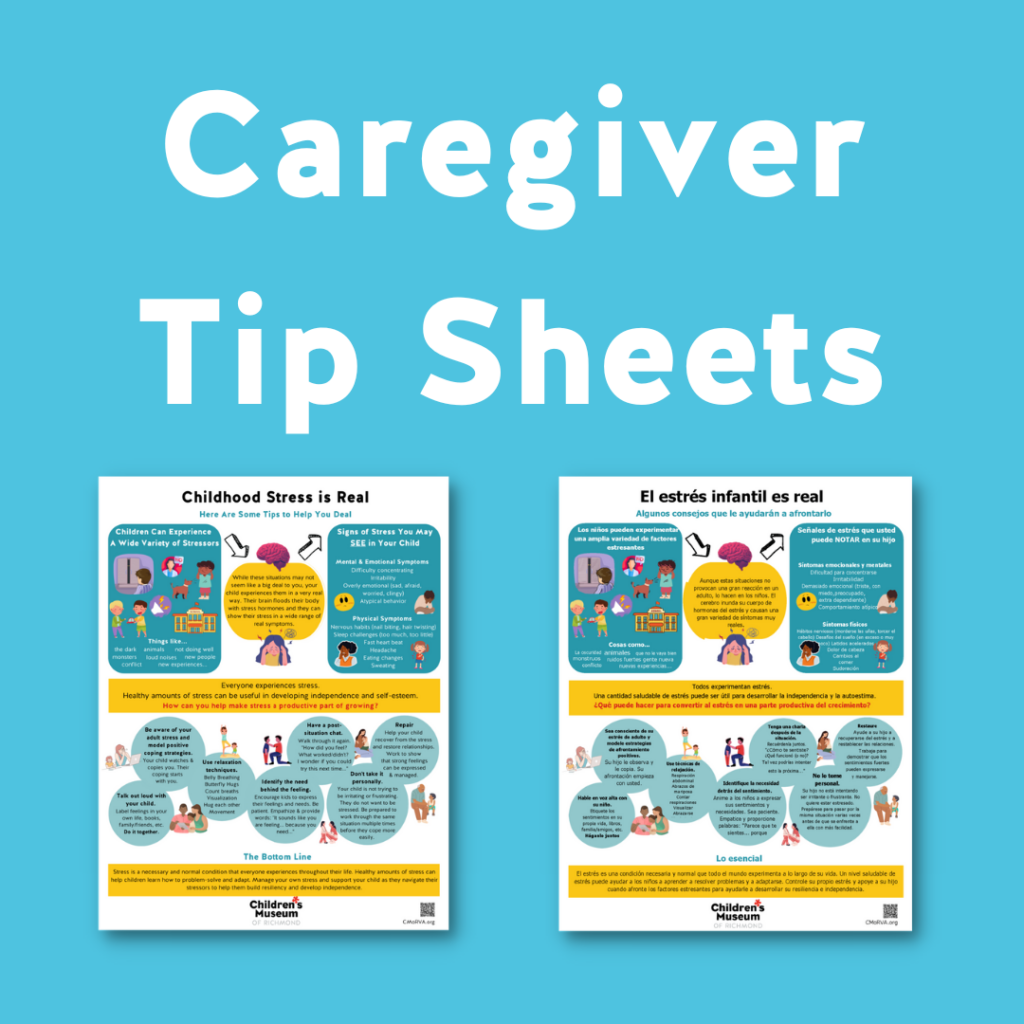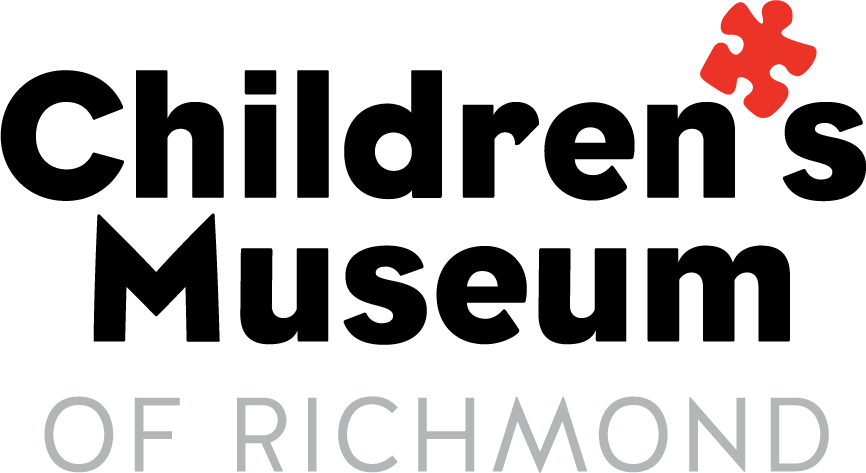Explore our Caregiver Tip Sheets!
CMoR is excited to introduce our new INFOGRAPHIC tip sheets for caregivers! We now have seven topics available. The tipsheets are bilingual – English and Spanish. Special thanks to VCU doctoral students for their research and creative skills and to the Spratley Family for funding this project. Click the headers below to access each tip…
Published on August 11, 2023

CMoR is excited to introduce our new INFOGRAPHIC tip sheets for caregivers! We now have seven topics available. The tipsheets are bilingual – English and Spanish.
Special thanks to VCU doctoral students for their research and creative skills and to the Spratley Family for funding this project.
Click the headers below to access each tip sheet!
The Basics Tipsheet
90% of brain growth happens by age five! The Basics Principles are five fun, simple, and powerful ways to help all children aged 0-5 prepare for school and life! The early years are the best opportunity for a child’s brain to develop the connections they need to be healthy, capable, successful adults.
Childhood Stress is Real Tipsheet
Everyone experiences stress. Healthy amounts of stress can be useful in developing independence and self-esteem. How can you help make stress a productive part of growing?
Learning & Play Tipsheet
Allow your child to play and let them have control, play for the fun of it, and pretend. This allows them
to be creative, interact, and learn how to relate with other children. It will also get them ready for school.
Literacy Development Tipsheet
Literacy is a fundamental part of early learning and starts at birth. Reading aloud to your child is a bonding opportunity that helps set reading as a positive experience. Children learn through exploration and play, so being intentional in the everyday moments helps build young minds. Each little activity adds up to build a strong foundation for lifelong learning.
Loose Parts Play
Caregivers can support a wide range of interests and skills (literacy, STEM, arts…) by providing children with inexpensive, collected loose parts and exploring alongside their child for hours of engaged play and learning. Loose parts are materials that can be moved, carried, combined, redesigned, lined up, and taken apart and put back together in multiple ways.
Tired of Hearing or Saying “NO”? Tipsheet
Intentional positive interactions increase your child’s independence, stronger sense of self and often, better behavior. Remember to be consistent, clear, and set limits while maintaining a calm tone of voice. This will help guide your child to the behavior you desire.
What’s a Parent’s Part in Play? Tipsheet
For children, play is the work they do naturally as a means of learning about the world in which they live. As parents, you are your child’s favorite playmate. Be intentional about seeking opportunities to enjoy your child’s company and to learn about their personality and the way they think and reason by joining them in play.
